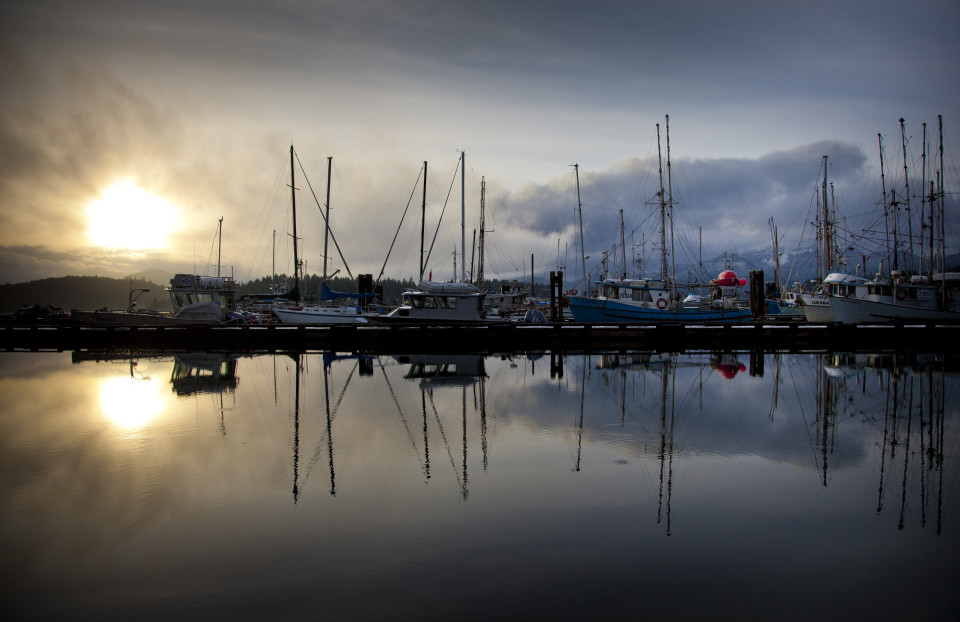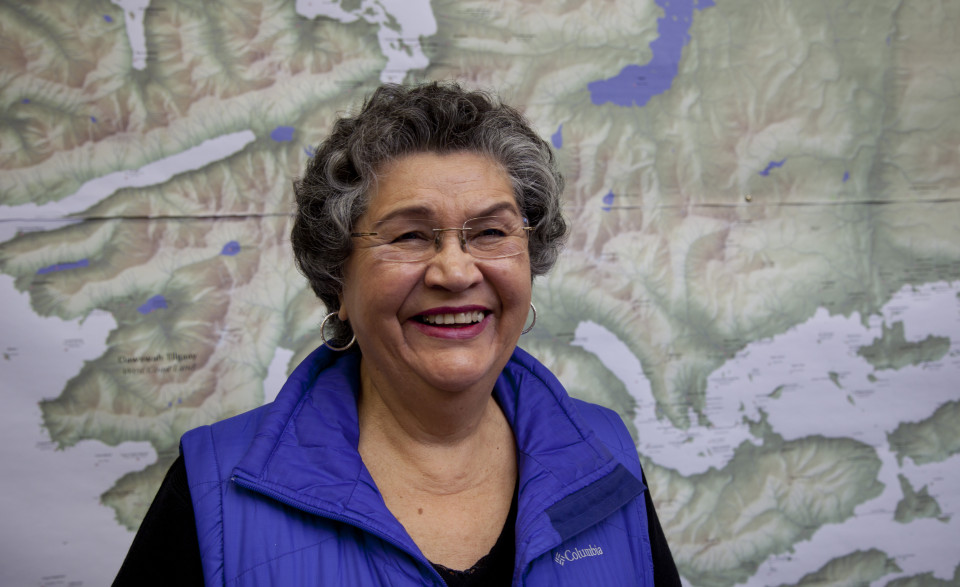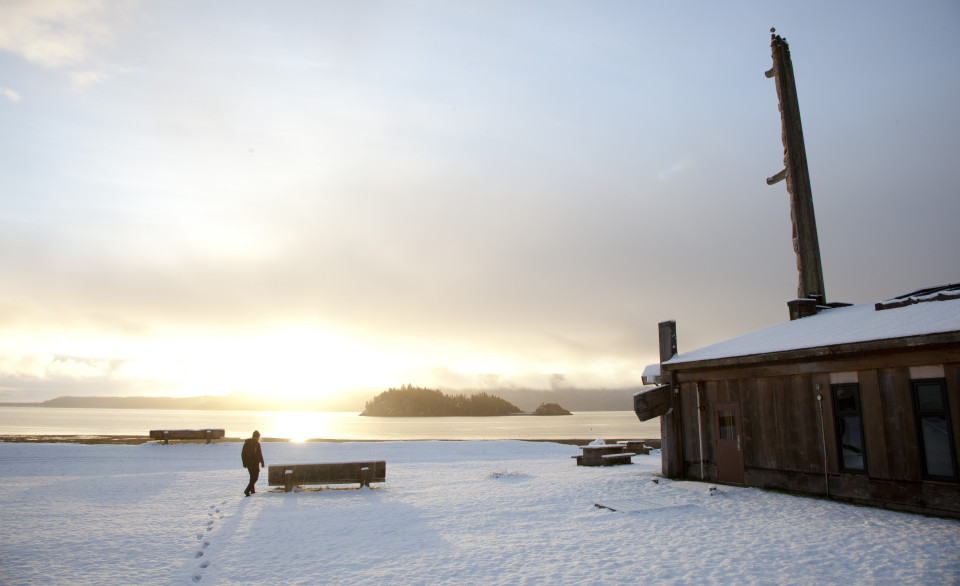[Text: Tomas Borsa. Photos: Skyler Flavelle & Jean-Philippe Marquis.]
There are few times in my life that I have felt as utterly exposed as the 130-kilometre ferry ride from Prince Rupert to Haida Gwaii. Lashing winds send waves as high as the fourth deck of the boat, and within an hour of boarding a robotic voice booms over the loudspeaker system, informing us that all doors leading outside will remain locked for our safety. The experience is that of a washing machine stuck on a particularly erratic spin cycle, and it isn’t long before Skyler, Jean-Philippe, and I decide that the best way to prevent being hurled from wall-to-wall is to lie down, summon the power of Gravol, and take cover. It is through this same body of water – the Hecate Strait – that bitumen-laden super-tankers departing from the Northern Gateway’s Kitimat terminal would cross through en route to China.
Eight hours later, the ferry shudders into the dock at Skidegate (Haida: Hlg̱aagilda), one of the three major towns on the island. Beautiful though it may be, the history of Skidegate is a tragic one. In the mid 1800’s, an epidemic of smallpox ravaged Haida Gwaii, reducing the total Haida population to as few as 500. By 1893, the remaining families form the entire southern half of the island had been relocated to Skidegate. Today, Haida culture is once again flourishing, thanks in large part to the Haida Language Center, dedicated to preserving the Haida language through the creation of immersion programs and educational curriculum. It is here that we’ve settled in for the morning, to hear Elders’ thoughts on Enbridge’s plan to send upwards of 225 super-tankers per year through their waters.
The Language Center is housed in a large, cedar building on Skidegate’s shoreline. A large totem pole carved by the late Bill Reid stands guard and looks out onto the ocean, while seagulls congregate in masses on the beach. Lunch at the Language Center consists of a hearty soup made with salmon, potato, and onion. Buns, dried seaweed, and oolichan oil are served on the side. The atmosphere is warm, and conversation easy. Barbara Wilson, an Elder who frequently visits the Language Center, volunteers a story when asked for her thoughts on the Northern Gateway’s impact on the island’s future: “I get so emotional thinking about my grandchildren not being able to get their food. They love to Haida dance, they love to learn the language. What would happen if we had an oil spill? What would happen to our food? One of my greatest memories is as a child, running down the beach and filling a pale, a bucket with food from my grandfather…we’d have our own fresh food for breakfast. And to think about that not happening, when I go, when I pass away, that would be the saddest thing for me to remember… We’ve had a lot of suffering in our lives with smallpox, residential schools, things like that…I just pray that they please leave us where we are. We’re happy here.”
As night looms on the horizon, we decide to search for a camping spot. Along the way, we stop to skip rocks into the ocean at an outcropping where no fewer than seven bald eagles are perched. Half-decomposed hooves, sun bleached-scalpulas and broken tibias are scattered at the base of the tree, evidence of a recent kill. We’re in agreement: this isn’t the best spot to settle in for the night. After coming across a well-maintained camping spot half an hour’s drive from Skidegate, near Tlell, we begin to unpack. Skyler and I wander down a thin, frost-covered trail leading to the beach, and begin to search for driftwood. As the trail gives way to sand, complete silence takes over. Apart from a faint light about a mile to the east, there are absolutely no signs of activity around us. The full moon has made for an extremely low tide, and we decide to walk in the direction of the waves – far enough into the distance that they can only barely be made out from the moon’s reflection. After five minutes of jumping from one barnacle-covered rock to the next, the tide slowly comes into view and I decide to stop and take in the stillness of my surroundings. Against the backdrop of a navy-black sky, only the faint sound of trickling water were there to remind me that time had not completely stopped.



